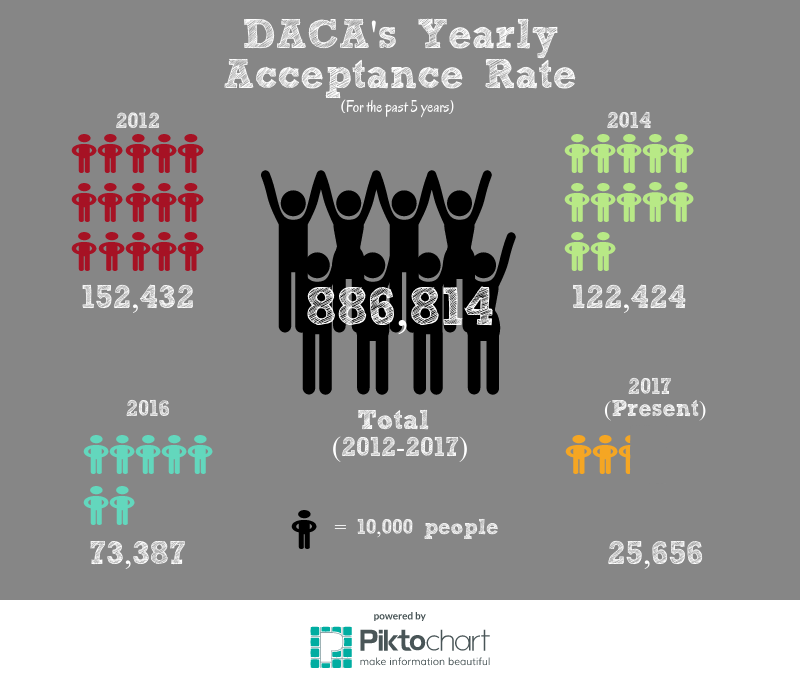By Bekah Denny

Sitting in one of hundreds of classrooms, there is a student stressing over whether he/she has a home. While that student is contemplating the end of DACA and its implications, Clark County has taken action against its removal.
DACA was founded by the Obama administration in 2012. This allowed minors who were brought into America illegally to receive a renewable two-year period of deferred action from deportation as well as the chance to gain a work permit in those two years. DACA has accepted about 886,814 people according to U.S. Citizenship and Immigration Services since its availability, and 25,656 people have been accepted so far this year.
To be eligible for DACA the applicant had to be 16 years old or younger when they were brought to America, must either still be attending school, have a GED, or have received an honorable discharge from the Coast Guard or armed forces.
“It’s not the kids’ fault; they didn’t make the decision to come here, their parents did. It’s our [Americas] best bet to educate them because they are most likely going to stay here, so they should be well educated, in turn making America more educated,” Ms. Ghazal, French teacher, said.
On January 26, in response to Donald Trump talking about ending DACA during the presidential debates, the Board brought forth and voted on the no-reporting policy. This policy means that should any federal officials come knocking on CCSD’s door, looking for any undocumented citizens’ personal information, CCSD will refuse to release it. The policy was officially enacted with a six to one vote.
Spurred by President Trump officially ordering an end to Deferred Action for Childhood Arrivals (DACA), on Sept. 5, Clark County School District (CCSD) sent out a memo reiterating a new policy, effective in March of 2018. Clark County released a reminder to all CCSD students that their schools would be a “safe place” for all undocumented students who would be affected by the end of DACA. In their news release, the new “no-reporting policy” clarifies what DACA was, the county’s involvement, and that the Board of Trustees is still supporting this new policy.
“I think it’s great that Clark County is getting involved and taking a stand. The end of DACA is going to change everything; kids get accepted to DACA because they are good kids, and they work harder than a lot of the ‘regular’ kids do because education isn’t free for them,” Sergio Maldonado, senior, said.
President Trump and Attorney General Jeff Sessions officially moved to end DACA at the Justice Department, calling it an “amnesty-first approach” and urged Congress to come up with a replacement before President Trump takes action to phase out its protections in six months. This will leave around 800,000 adults and children unprotected by the Deferred Action for Childhood Arrivals and available for deportation.
Along with Clark County at least three other states have threatened action against the conclusion of DACA. California, Washington, and New York are considering taking legal action against the Trump administration, and the students affected, who have taken to calling themselves “DREAMers,” have been protesting this change to legislature all across the country.
“We don’t report undocumented immigrants to authorities. The end of DACA would not affect the education of undocumented students in CCSD,” Carolyn Edwards, CCSD Trustee, said.











